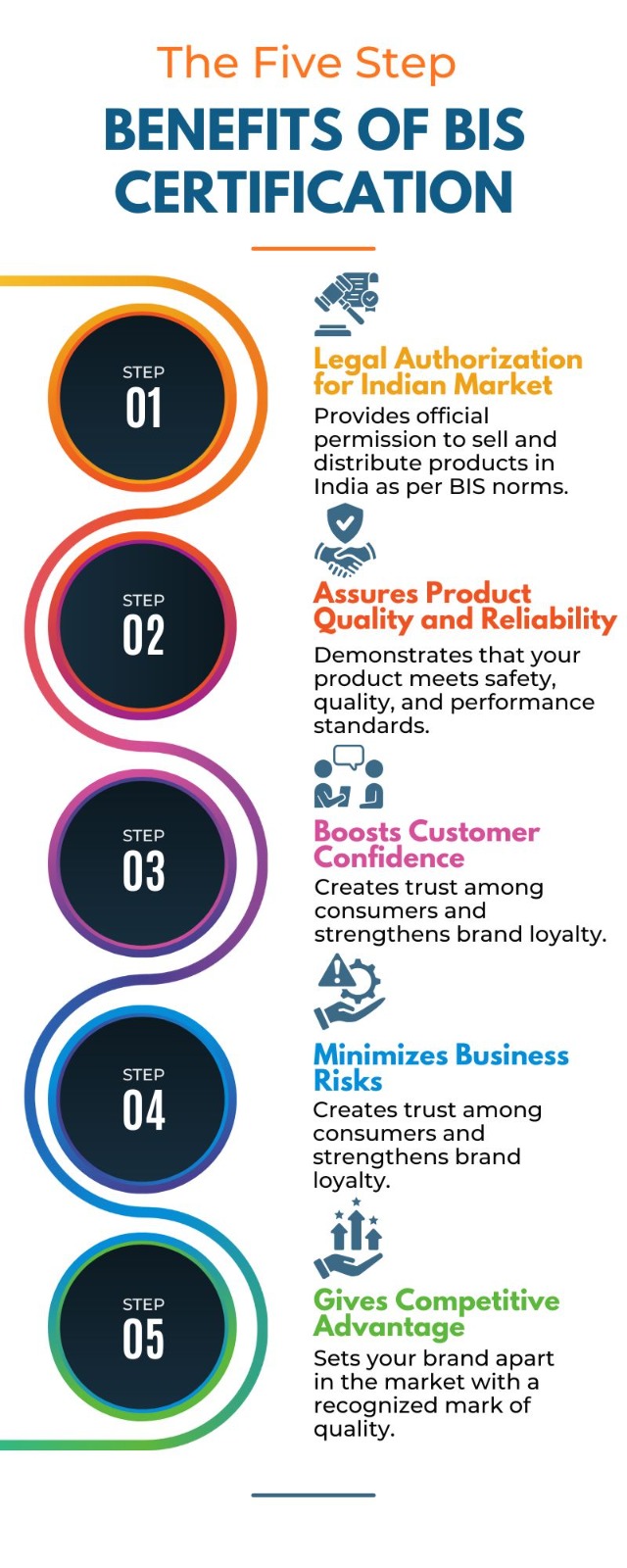Get A Quote
EPCG Scheme
The EPCG Scheme enables Indian businesses to import machinery and equipment duty-free. EVTL India streamlines the process of obtaining your EPCG Authorization certificate, offering expert guidance and efficient services. With EVTL India’s support, you can secure essential documentation easily, allowing you to focus on expanding your export operations.

- Overview
- What is EPCG Scheme
- Who Can Benefit from the EPCG Scheme?
- Key Features of the EPCG Scheme
- What Capital Goods are Eligible?
- Understanding Export Obligation Under EPCG
- How to Apply for the EPCG Scheme
- Reporting and Compliance for Export Obligation
- Import and Installation Process
- Managing Export Obligations and Extensions
- Closure of EPCG Authorization
- Benefits of the EPCG Scheme
- Conclusion
- Frequently Asked Question (FAQ)
EPCG Scheme - Overview
The Export Promotion Capital Goods (EPCG) Scheme is a vital initiative by the Government of India designed to support exporters by providing duty-free access to capital goods necessary for production. Introduced under the Foreign Trade Policy, the EPCG Scheme allows Indian businesses to import machinery and equipment without paying customs duties.

This scheme significantly lowers the cost of acquiring advanced technology, helping Indian businesses improve the quality and efficiency of their production processes. By promoting easier access to high-quality machinery and technology, the EPCG Scheme enhances India’s competitiveness on the global stage, fostering growth in export-driven sectors of the economy.
What is the EPCG Scheme?
The EPCG Scheme stands for Export Promotion Capital Goods Scheme. Its main purpose is to enable Indian businesses to import necessary capital goods at zero customs duty, which includes machinery and other equipment needed to manufacture goods and provide services for export. The primary goal is to reduce the cost burden on exporters, allowing them to invest in modern, efficient, and productive equipment to enhance both the quality and quantity of their products. By lowering costs for machinery acquisition, the EPCG Scheme empowers Indian businesses to be more competitive globally, promoting an increase in exports.
Under this scheme, capital goods are broadly defined to include equipment, machinery, instruments, and components required for the manufacturing, production, or provision of services. These capital goods must contribute to the production of export-oriented goods and services. Beneficiaries of the EPCG Scheme are required to meet certain export obligations, which are linked to the value of the imported goods. Typically, beneficiaries must export products or services worth six times the duty they would have otherwise paid on the imported capital goods. This export obligation generally needs to be fulfilled over six years from the date of the issue of the EPCG authorization.
Who Can Benefit from the EPCG Scheme?
The scheme is designed to benefit several categories of exporters:
- Manufacturer-exporters – Companies that manufacture goods in India and sell them in international markets, whether they have a supporting manufacturer or not.
- Merchant exporters – Individuals or entities involved in the export business who may work in partnership with supporting manufacturers. This arrangement allows merchant exporters to access advanced manufacturing facilities to improve their products’ quality and volume.
- Service providers – Certain service providers, including those in tourism, hospitality, healthcare, and software sectors, are also eligible for the EPCG Scheme if they provide export services. This inclusion is particularly significant for businesses aiming to expand internationally, as the scheme enables them to access better technology and equipment without the prohibitive cost of customs duty.
Key Features of the EPCG Scheme
The EPCG Scheme includes several beneficial features that make it appealing for exporters:
Zero Duty on Capital Goods: Businesses can import capital goods at zero customs duty. There’s also an exemption on Integrated Goods and Services Tax (IGST).
Indigenous Sourcing: can purchase capital goods from domestic suppliers and still benefit from the scheme. In such cases, they may qualify for a refund of the Goods and Services Tax (GST) paid.
Export Obligation (EO): To benefit from the zero-duty import, businesses must fulfill an export obligation, which generally means exporting goods worth six times the duty saved within six years.
What Capital Goods are Eligible?
Under the EPCG Scheme, a range of capital goods qualifies for duty-free imports, provided they are essential for manufacturing, production, or service provision in export-oriented industries. Eligible capital goods include:
- Machinery and Equipment: Essential for manufacturing and production across various sectors.
- Packaging Machinery and Equipment: Necessary for industries requiring sophisticated packaging solutions to meet global standards.
- Testing and Quality Control Equipment: Helps maintain quality assurance in exported products.
- Power Generating Sets and Machine Tools: Supports the uninterrupted production of goods by providing necessary power and precision.
- Refrigeration and Pollution Control Equipment: Vital for sectors requiring regulated storage conditions and environmentally sustainable production.
- Computer Software Systems: For companies that need advanced software tools in their manufacturing and export operations.
These capital goods are critical to boosting productivity, quality, and compliance with international standards, enabling Indian exporters to strengthen their position in the global market.
Understanding Export Obligation Under EPCG
To qualify for duty-free imports under the EPCG Scheme, businesses must meet specific export obligations, which ensure that the benefits of the scheme directly contribute to India's export growth. There are two primary types of export obligations:
- Specific Export Obligation: This obligation requires businesses to export goods worth six times the amount of duty saved on imports within a six-year period. This timeframe is split into two blocks:
- 50% of the export obligation must be completed within the first four years.
- The remaining 50% must be fulfilled within the following two years.
- Annual Average Export Obligation: In addition to the specific export obligation, companies must also maintain an average level of exports based on the export performance of similar goods in the previous three years. New companies, however, do not have an annual average obligation during their initial years under the scheme.
If a company cannot meet the first block of the export obligation, it can apply for an extension, subject to applicable fees. Extensions offer flexibility for businesses facing unforeseen challenges in fulfilling their commitments.
How to Apply for the EPCG Scheme
The application process for the EPCG Scheme is managed through the Directorate General of Foreign Trade (DGFT) online portal. Here are the key steps and requirements:
- Form Submission: Applicants must fill out form ANF 5A, which requires specific details and documentation.
- Required Documents: Key documents include:
- IEC Number (Importer Exporter Code) linked to a user profile on the DGFT portal.
- GSTN details for all branches associated with the IEC.
- RCMC (Registration-Cum-Membership Certificate) from the relevant industry body.
- Details of the capital goods, suppliers, and export products.
- Bank Guarantee up to 20% of the duty saved, to assure fulfillment of the export obligation.
- Certificates from a Chartered Accountant (CA) or Chartered Engineer (CE) confirming relevant information about the company and its capital goods.
- Authorization: Once the application and fees are submitted, the DGFT reviews and issues the authorization, allowing the business to proceed with duty-free imports under the scheme.
Reporting and Compliance for Export Obligation
To ensure compliance with the EPCG Scheme, annual reporting of exports is required. By June 30 each year, authorization holders must submit the following export details:
- Shipping bill or GST invoice numbers for exports completed.
- Export date and product descriptions.
- FOB (Free on Board) value for each export.
Timely reporting is crucial to maintain compliance. For any delayed submissions, a late fee of ₹5,000 applies, underscoring the importance of adhering to the reporting timeline.
Import and Installation Process
After obtaining the EPCG authorization, businesses should follow these steps to comply with the import and installation requirements:
- Register EPCG License with Customs Authority: Authorization holders must register their EPCG license with the local customs authority to enable duty-free import.
- Import Capital Goods: The authorized capital goods must be imported within 24 months from the date of authorization.
- Installation of Machinery: The imported equipment must be installed at the registered manufacturing facility within six months of import.
An Installation Certificate, confirming the machinery’s installation at the registered premises, is required within six months. This certificate can be obtained from the local customs authority or a certified engineer.
Managing Export Obligations and Extensions
The EPCG Scheme allows for flexibility in meeting export obligations, particularly for businesses facing difficulties. Extensions can be requested in two forms:
- Block-wise Extensions: Companies can request an extension within six months of the block period ending, with a fee of 2% on the duty saved.
- Extended Export Obligation Period: For businesses needing additional time, the DGFT can extend the export obligation period up to a total of eight years from the date of authorization. Applicable fees apply for such extensions.
However, extensions beyond this period are generally not allowed, so companies should aim to fulfill their obligations within the available timeline.
Closure of EPCG Authorization
Upon fulfilling the export obligation, businesses must apply for an Export Obligation Discharge Certificate (EODC) through the DGFT by submitting proof of export completion. There are three ways to close the EPCG authorization:
- Fulfilling Export Obligations: Complete the required exports within the specified timeframe.
- Duty Payment: Pay customs duties in cases where the export obligation wasn’t fully met.
- Clubbing of Licenses: Clubbing allows for combining export obligations from multiple EPCG licenses to offset shortfalls and request a final discharge certificate.
After receiving the EODC, businesses can finalize the cancellation of any bonds or bank guarantees held with customs.
Benefits of the EPCG Scheme
The EPCG Scheme offers several advantages for businesses:
Reduced Production Costs: By waiving customs duty on imports of capital goods, the scheme reduces the production costs for exporters, making it easier to invest in quality machinery.
Increased Competitiveness: Access to advanced equipment improves production efficiency and output quality, making Indian goods and services more competitive in global markets.
Encouragement for Modernization: The scheme promotes technological advancement by facilitating the import of state-of-the-art machinery and equipment, essential for maintaining production standards in line with international demands.
Broader Market Reach: For service providers looking to grow internationally, the scheme enables access to necessary tools to deliver services at a higher standard, broadening the scope of their offerings.
Export Obligation Flexibility: Although there are export obligations, the scheme provides some flexibility, particularly for exporters who face unforeseen challenges in meeting the obligations, offering extensions and partial fulfillment options under specific conditions.
Conclusion:
The EPCG Scheme is an invaluable resource for Indian businesses aiming to expand in global markets. By allowing zero-duty imports for capital goods, it fosters technological advancement, cost efficiency, and export growth. While some compliance requirements are strict, the long-term benefits—including improved product quality, reduced costs, and better market competitiveness—make the EPCG Scheme a key tool in India’s export promotion strategy.
EVTL India simplifies the process of obtaining your EPCG Authorization certificate, ensuring a hassle-free experience. With expert guidance and streamlined services, EVTL India assists businesses in securing the necessary documentation to access duty-free imports of capital goods under the EPCG Scheme, enabling you to focus on expanding your exports.
Frequently Asked Questions (FAQ)
Our Services
Testimonials
News & Updates









